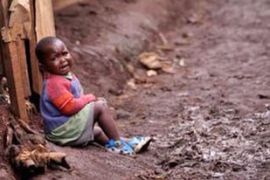Kenya’s cabinet branded ‘wasteful’
Outcry comes as political rivals announce agreement on new 40-minister government.

Published On 4 Apr 2008
The government conceded that the cabinet was large, but said it was necessary to include all communities across the country.
| In video |
“Most of the new ministries are subdivided from formerly existing ministries and therefore the budget and members of staff for those new ministries already exist,” Alfred Mutua, a government spokesman, said.
“There is no price that is too high for our country to ensure peace, harmony and reconciliation, healing and stability that will spur and grow the economy and create even more wealth.”
‘Totally wasteful’
But the head of the Africa Centre for Open Governance accused Kenya’s political leaders of creating a “totally wasteful government”.
“What Kibaki and Raila [Odinga] did was to show that their clients are not the people of Kenya, but themselves and their political expedients,” said Gladwell Otieno.
“The two agreed to set up a totally wasteful government, rewarding each other with ministries that we do not need and yet they are the ones who set off the crisis that has left Kenyans suffering.”
“This is a very bad start for a Grand Coalition that has yet to be accepted by a majority of Kenyan,” Mwalimu Mati, an anti-corruption campaigner with Mars Group Kenya, wrote on his blog.
He estimated the cost of the new cabinet as costing Kenyans 52 billion Kenyan shillings ($840m) a year.
About 60 per cent of Kenya’s population lives on less than one dollar a day.
Business groups have long complained Kenya’s public wage bill takes too large a portion of expenditure, eating into money that would otherwise fund development projects.
Kibaki and Odinga, the prime minister-designate, agreed to share power after a disputed December election sparked clashes that killed more than 1,200 people, uprooted more than 300,000 and hit some of Kenya’s key economic sectors, including tourism and transport.
Odinga’s Orange Democratic Movement, which argued for 25 ministries compared to the 44 that Kibaki’s team wanted, is expected to get half the cabinet seats though it was unclear which ones.
Source: News Agencies
